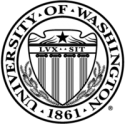Last year we noted that a bill to expand local authority to invest in publicly owned broadband networks would return in 2012.
HB 1711 is in Committee and causing a bit of a stir. "A bit of a stir" is good -- such a reaction means it has a chance at passing and giving Washington's residents a greater opportunity to have fast, affordable, and reliable access to the Internet.
Washington's law presently allows Public Utility Districts to build fiber-optic networks but they cannot offer retail services. They are limited to providing wholesale services only -- working with independent service providers to bring telecom services to the public.
Unfortunately, this approach can be financially debilitating, particularly in rural areas. Building next generation networks in very low density areas is hard enough without being forced to split the revenues with third parties.
Last year,
House Bill 2601 created a study to examine telecommunications reform, including the possibilty of municipality and public utility district provisioning. The University of Washington School of Law examined the issues and
released a report [pdf] that recognizes the important role public sector investments can play:

Broadband infrastructure is this century’s interstate highway system: a public investment in an infrastructure that will rapidly connect Washington’s citizens statewide, nationally, and internationally; fuelling growth, competition, and innovation. Like highway access, the path to universal broadband access varies with the needs of the local community.
Our primary goal is to expand broadband access. We believe allowing municipalities and PUDs to provide broadband services addresses the most significant hurdles to broadband expansion: the high cost of infrastructure. In conjunction with a state USF, PUDs and municipalities are well placed to address the needs of their consumers.
A secondary goal is to promote a competitive marketplace.




